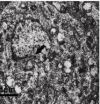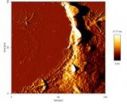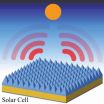(Press-News.org) From telephone numbers to foreign vocabulary, our brains hold a seemingly endless supply of information. However, as we are getting older, our ability to learn and remember new things declines. A team of scientists around Associate Prof Dr Antonio Del Sol Mesa from the Luxembourg Centre for Systems Biomedicine of the University of Luxembourg and Dr Ronald van Kesteren of the VU University Amsterdam have identified the molecular mechanisms of this cognitive decline using latest high-throughput proteomics and statistical methods. The results were published this week in the prestigious scientific journal Molecular and Cellular Proteomics (doi:.10.1074/mcp.M113.032086).
Brain cells undergo chemical and structural changes, when information is written into our memory or recalled afterwards. Particularly, the number and the strength of connections between nerve cells, the so-called synapses, changes. To investigate why learning becomes more difficult even during healthy ageing, the scientists looked at the molecular composition of brain connections in healthy mice of 20 to 100 weeks of age. This corresponds to a period from puberty until retirement in humans. "Amazingly, there was only one group of four proteins of the so-called extracellular matrix which increased strongly with age. The rest stayed more or less the same," says Prof Dr Antonio del Sol Mesa from the Luxembourg Centre for Systems Biomedicine. The extracellular matrix is a mesh right at the connections between brain cells. A healthy amount of these proteins ensures a balance between stability and flexibility of synapses and is vital for learning and memory. "
An increase of these proteins with age makes the connections between brain cells more rigid which lowers their ability to adapt to new situations. Learning gets difficult, memory slows down," Dr Ronald van Kesteren of the VU University Amsterdam elaborates.
In addition, the researchers not only looked at the individual molecules but also analysed the whole picture using a systems biology approach. Here they described the interplay between molecules as networks that together tightly control the amount of individual molecules and their interactions. "A healthy network keeps all molecules in the right level for proper functioning. In older mice we found, however, that the overall molecular composition is more variable compared to younger animals. This shows that the network is losing its control and can be more easily disturbed when we age," Prof Dr Antonio del Sol Mesa further explains. According to the researchers this makes the brain more susceptible to diseases.
Hence, this insight into the normal aging process could also help in the future to better understand complex neurodegenerative diseases such as Alzheimer's and Parkinson's disease. Chemical compounds that modulate the extracellular matrix might be promising new treatments for learning disorders and memory loss.
INFORMATION:
Rigid connections: Molecular basis of age-related memory loss explained
2014-07-22
ELSE PRESS RELEASES FROM THIS DATE:
New water balance calculation for the Dead Sea
2014-07-22
This news release is available in French.
Tel Aviv/Halle, Saale. The drinking water resources on the eastern, Jordanian side of the Dead Sea could decline severe as a result of climate change than those on the western, Israeli and Palestinian side. This is the conclusion reached by an international team of researchers that calculated the water flows around the Dead Sea. The natural replenishment rate of groundwater will reduce dramatically in the future if precipitation lowers as predicted, say the scientists, writing in the journal Science of the Total Environment. ...
Novel methods may help stem cells survive transplantation into damaged tissues
2014-07-22
New Rochelle, NY -- Stem cells offer much promise for treating damaged organs and tissues, but with current transplantation approaches stem cell survival is poor, limiting their effectiveness. New methods are being developed and tested to improve the survival and optimize their therapeutic function after transplantation, as described in a Review article in BioResearch Open Access, a peer-reviewed journal from Mary Ann Liebert, Inc., publishers. The article is available free on the BioResearch Open Access website.
In the article 'Preconditioning Stem Cells for In Vivo ...
Study compares cost-effectiveness of weight-loss programs and drugs
2014-07-22
DURHAM, N.C. – In a cost-effectiveness analysis of commercial diet programs and pills, the Weight Watchers program and the drug Qsymia showed the best value for the money. The Jenny Craig regimen generated the greatest weight loss, but was also the most expensive option tested, according to researchers at Duke-National University of Singapore (NUS) Graduate Medical School.
The findings, published in the June issue of the journal Obesity, provide important information on the health and weight-loss benefits per dollar spent as insurance carriers consider coverage for weight ...
The nostalgia effect: Do consumers spend more when thinking about the past?
2014-07-22
Say you are out clothes shopping and you spot something that brings you back to a special time from your childhood when you were surrounded by friends and family. Suddenly, you find yourself purchasing an expensive shirt that makes you feel like a kid again. According to a new study in the Journal of Consumer Research, we're more likely to spend money when we're feeling nostalgic.
"We wondered why nostalgia is so commonplace in marketing. One reason could be that feeling nostalgic weakens a person's desire for money. In other words, someone might be more likely to buy ...
Trying to get kids to eat healthier? Don't tell them veggies are good for them
2014-07-22
At some point, most kids will hear that drinking milk helps make their bones strong or that fish is food for the brain. But do these messages foster the idea that if something is good for us, it must surely taste bad? According to a new study in the Journal of Consumer Research, when children hear about the benefits of healthy food, they're less likely to eat it.
"We predicted that when food is presented to children as making them strong or as a tool to achieve a goal such as learning how to read or count, they would conclude the food is not as tasty and therefore consume ...
You deserve it! Are consumers more likely to buy unique products when made to feel special?
2014-07-22
Graduating from college is an important life event often attributed to being smart and working hard. Many people celebrate this milestone achievement by buying themselves an expensive gift or taking a dream vacation. A new study in the Journal of Consumer Research shows that consumers who attribute their successes to internal character traits rather than hard work are more likely to select unique products.
"We found that consumers who attribute feelings of pride to their unique character traits—rather than how hard they worked to accomplish something—are more likely to ...
HIF 1α viral vector inhibits hippocampal neuronal apoptosis: The future of gene therapy
2014-07-22
Hypoxia-inducible factor 1 (HIF-1) attenuates amyloid-beta protein neurotoxicity and decreases apoptosis induced by oxidative stress or hypoxia in cortical neurons. Prof. Xiqing Chai and co-workers from Hebei Chemical and Pharmaceutical College, China constructed a recombinant adeno-associated virus (rAAV) vector expressing the human HIF-1α gene (rAAV-HIF-1α) efficiently, and tested the assumption that rAAV-HIF-1α represses hippocampal neuronal apoptosis induced by amyloid-beta protein. Their results confirmed that rAAV-HIF-1α significantly reduces apoptosis ...
Acupuncture at the Taixi activates cerebral neurons in old patients with MCI
2014-07-22
Previous findings have demonstrated that acupuncture at the Taixi (KI3) acupoint in healthy youths can activate neurons in cognitive-related cerebral cortex. In a perspective article released in the Neural Regeneration Research (Vol. 9, No. 11, 2014), Dr. Shangjie Chen and co-workers at Baoan Hospital, Southern Medical University, China investigated whether acupuncture at this acupoint in elderly patients with mild cognitive impairment (MCI) can also activate neurons in these regions. Researchers revealed that under resting state and task-related functional magnetic resonance ...
X-ray irradiation at a certain dose alters the neuronal cytoskeleton and cytomechanics
2014-07-22
Cranial radiotherapy is one of the most important therapeutic methods for the treatment of various types of primary and metastatic brain tumors. Although conventional photon irradiation has significantly improved the treatment of cancer, the central nervous system is prone to damage after high-dose irradiation, resulting in severe delayed or progressive nervous tissue injury. The issues regarding brain radiation injury have been widely discussed, and recent investigations have emphasized changes in pathomorphology. However, the underlying mechanism remains in debate. Researchers ...
Self-cooling solar cells boost power, last longer
2014-07-22
WASHINGTON, July 22, 2014—Scientists may have overcome one of the major hurdles in developing high-efficiency, long-lasting solar cells—keeping them cool, even in the blistering heat of the noonday Sun.
By adding a specially patterned layer of silica glass to the surface of ordinary solar cells, a team of researchers led by Shanhui Fan, an electrical engineering professor at Stanford University in California has found a way to let solar cells cool themselves by shepherding away unwanted thermal radiation. The researchers describe their innovative design in the premiere ...




